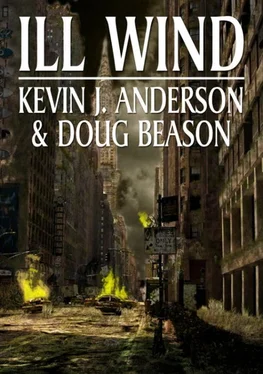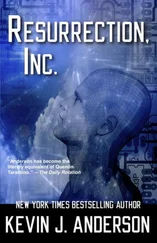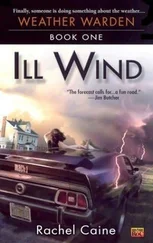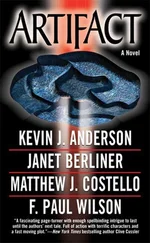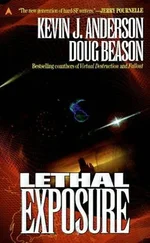Behind him, the riders split up to intercept him. They shot again, and Bobby knew they had no interest in capturing him alive this time. At least he had fled far enough that the satellites were safe—but these riders must have tracked the wagon trail. How many men had Bayclock sent out after him?
The gunshots came in faster succession now. The riders tightened the distance. Another volley of shots—the loudest so far—rang out in a sudden echo like firecrackers.
The horse whinnied and reared as Bobby saw a sudden scarlet blotch appear on it’s ribcage four inches in front of his own thigh. The horse stumbled, falling over and throwing Bobby.
He tried to hold on, but then rolled free as the horse thrashed on the ground to get to its feet again. The horse was bleeding heavily from the large gunshot wound close to its heart. It stamped up and down, then staggered back, limping.
Bobby stood gingerly. His leg was sore, but nothing was broken, nothing sprained. He looked around for some rocks to hide in, anything for shelter.
Then the hoofbeats of other horses pounded down on him from all sides. Four riders came up, each with rifle drawn.
Bobby stood slowly with his back against a wall of sandstone, and raised his hands in surrender.
* * *
By late morning, Bobby Carron found himself Bayclock’s prisoner once more. They tied him helplessly on the back of a horse, then rode off toward the foothills on the opposite side of the valley. The encampment had already moved, and from his rocking position on horseback, Bobby was dismayed to see that the general’s army had succeeded in taking over the damaged railgun facility in only a few hours.
The troops had marched up to the control buildings at the bottom of the miles-long electromagnetic launcher. From what he could tell, the scientists had not put up much of a fight.
Bobby stumbled when his captors hauled him off the horse and dragged him to his feet. Smears of soot blackened the launcher control building. He tried to see other people he recognized. He hoped the scientists had gotten away.
General Bayclock strode out of the burned-out control building. His eyes were bloodshot and he looked at Bobby with disgust. “This time I’m taking no chances. Lead the prisoner to the telephone pole. Right now.”
One of the guards shoved him down a path toward an old creosote-covered utility pole that had once carried electricity to the launcher facility. Spencer’s people had already removed the wires from the pole—but Bayclock had another purpose in mind.
“I knew you were a traitor, Lieutenant, but I didn’t believe you would team up with a slimeball like Connor Brooks to steal the satellites. We’ll find him, soon. Which one of you murdered Sergeant Morris, or did you take turns bashing her head in?”
Bobby stared at him. Sergeant Morris, dead ? He said numbly, “What are you talking about?”
“Don’t insult me,” said Bayclock. “I think we’ll go the high route with you.” The general looked up to the wooden crossbars on the electrical pole. “We’ll hoist you up so we don’t have to cut down Dr. Nedermyer.”
Bobby wavered as the guards pushed him forward. He saw the blue-black clenched face of Lance Nedermyer. Bayclock had thrown a loop of rope around his neck like a garrote, inserted a short stick, and then twisted it to draw the rope tighter and tighter until it crushed Lance’s larynx and severed his trachea. Bobby saw scuff marks in the sand and fresh gouges from the bottom of the utility pole where Lance had kicked and struggled. His body had already begun to bloat in the bright morning heat.
“I have no patience left for traitors,” Bayclock said. “It’s about time my people realized that.”
Standing on the south balcony of the White House, President Jeffrey Mayeaux watched his military troops patrol the Mall. The National Guard had forcibly removed angry crowds from the Ellipse and the south lawn. Even the cherry trees along the Tidal Basin had been cut down and stored as firewood for the winter.
He crumpled the handwritten communique in his hand and let it fall to the floor.
The commander of the San Diego naval base had been assassinated while trying to stop a rally against the military crackdowns. The crowds had gone wild, killing the admiral and at least fifty Naval officers around the city. A self-appointed ruling council had seized control of the shipyards and the base facilities. According to the report, the other Navy personnel on duty had surrendered willingly.
What the hell was he supposed to do about that ?
“I want a meeting with my Joint Chiefs in five minutes!” he said without turning. He heard one of the Secret Service men leave the room. He wished Franklin Weathersee would get back from his stupid grocery shopping expedition.
Everybody blamed Mayeaux for their problems, and nobody listened when he issued orders to take care of anything. For God’s sake, he hadn’t caused the petroplague!
He hadn’t heard a word from the old bitch Emma Branson at Oilstar for more than a month, and he was glad—she could fend for herself out in California. He had heard one report that mobs had burned down the Oilstar refinery, but he didn’t know if he could believe it. Probably.
Around the country the citizens had begun to throw up their own defenses and forget the big picture. Mayeaux was in charge of what he had started to think of as the “Humpty Dumpty Squad”—no matter how many long hours he put in or nights he spent without sleep, he still could not put the pieces together again. But if the population thought their President was just going to pick his nose while the world went down the toilet, they were in for a hell of a surprise. He hated not knowing what to do, what would work, what would snap the mobs out of their pigs-fighting-over-a-corncob anarchy. People just didn’t make sense.
Mayeaux had the chance to pull off the biggest change in history and set the tone of the country—hell, the world!—for the next century. How much room remained on Mount Rushmore, after all? Could they squeeze Mayeaux’s face in somewhere between Roosevelt and Lincoln?
The U.S. could get back on its feet, according to the advances projected by NIST scientists—petroplague-resistant plastics, the change to a hydrogen-based energy economy… if people could resist turning into post-holocaust barbarians.
But they wouldn’t listen to reason United we stand, divided we fall —dammit, every kid in the country had that slogan hammered into him from grade school on.
Mayeaux followed the Secret Service men down to the Situation Room. No one stood for him when he entered, a sign of disrespect like a slap in the face. No one greeted him, no optimistic “Good morning, sir!” from the staffers. Where the hell was the rest of his Cabinet? He hadn’t even seen the Vice President in a month. The guy could at least bicycle down from the Naval Observatory once in a while.
Only two military officers had come to the table—General Wacom, Chairman of the Joint Chiefs, and the CNO, the admiral Chief of Naval Operations. Both men looked grim. Mayeaux didn’t recognize any of the White House staffers wearing blue WHS pins as substitutes for laminated badges.
“Have you forgotten how to stand when your Commander-in-Chief enters the room, gentlemen?” he said. This was worse than he had thought.
Grudgingly, the two officers struggled to their feet. Mayeaux pulled up his chair and dispensed with niceties. “I called a meeting in five minutes! Where is everybody else?”
“They won’t be joining us,” General Wacom said.
“Why the hell not? This isn’t a RSVP party invitation.”
The general did not answer the question. “How can we help you this morning, Mr. President?”
Читать дальше
